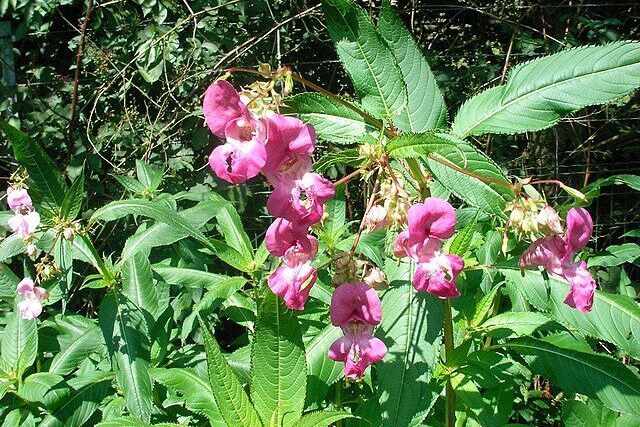
“When we got to the field it was just a sea of pink,” said retired conservationist Graham Roberts, who is leading the fight against Himalayan balsam.
Although officially retired, each summer Roberts organises teams of volunteer “balsam bashers” to rip out the invasive species choking the River Lim in Dorset. The task can feel endless, but he is confident the river can be cleared within five years.
“We have done almost two seasons,” he said. “It’s challenging but we will carry on as long as we are fit and able to do it.”
Around 70 people are now part of River Lim Action – a group campaigning for cleaner water, better fish passage and the protection of native species.
“We often get 10 or 12 people,” said Mr Roberts. “Last weekend we had 17, and we managed to clear a huge field last week.”
Himalayan balsam was first introduced to Britain as a garden plant in the late 1800s. Each plant can produce around 800 seeds, which explode when ripe and scatter up to seven metres away. It crowds out native plants and weakens riverbanks, leaving them vulnerable to erosion. Bees are drawn to it, but this diverts pollination away from native flowers.
Roberts said the Environment Agency and Dorset Council lack the resources to tackle the problem, leaving volunteers and conservation groups to take action.
A similar project on the Lymington River in Hampshire involved 661 volunteers over ten years, clearing balsam along 53km of riverbank. The Hampshire and Isle of Wight Wildlife Trust said areas once smothered by balsam were now restored with native bluebells, stitchwort and campion.
Himalayan balsam is also the most invasive plant affecting Isle of Wight waterways, where the trust is leading a clearance programme on the Eastern Yar.
Mr Roberts said: “The Lim is a small river, about 5km (3 miles) long, so I’m hoping we can get rid of it.
“The problem is that seeds can stay dormant for up to three years, which is why we’ve said five years.
“We can clear the surface balsam then, three years on, they’ve come back a massive amount.”
River Lim Action is backed by Lyme Regis Town Council, which has pledged five years of funding for gloves, bins, secateurs and other tools to help volunteers tackle the plant hidden deep in brambles.
“People say it’s too big a problem but someone has got to grab it and say it’s really important,” said Mr Roberts.
“If we’re not careful, the whole of England will be covered in Himalayan balsam.”
——————————————————————————
At Natural World Fund, we are passionate about restoring habitats in the UK to halt the decline in our wildlife.

